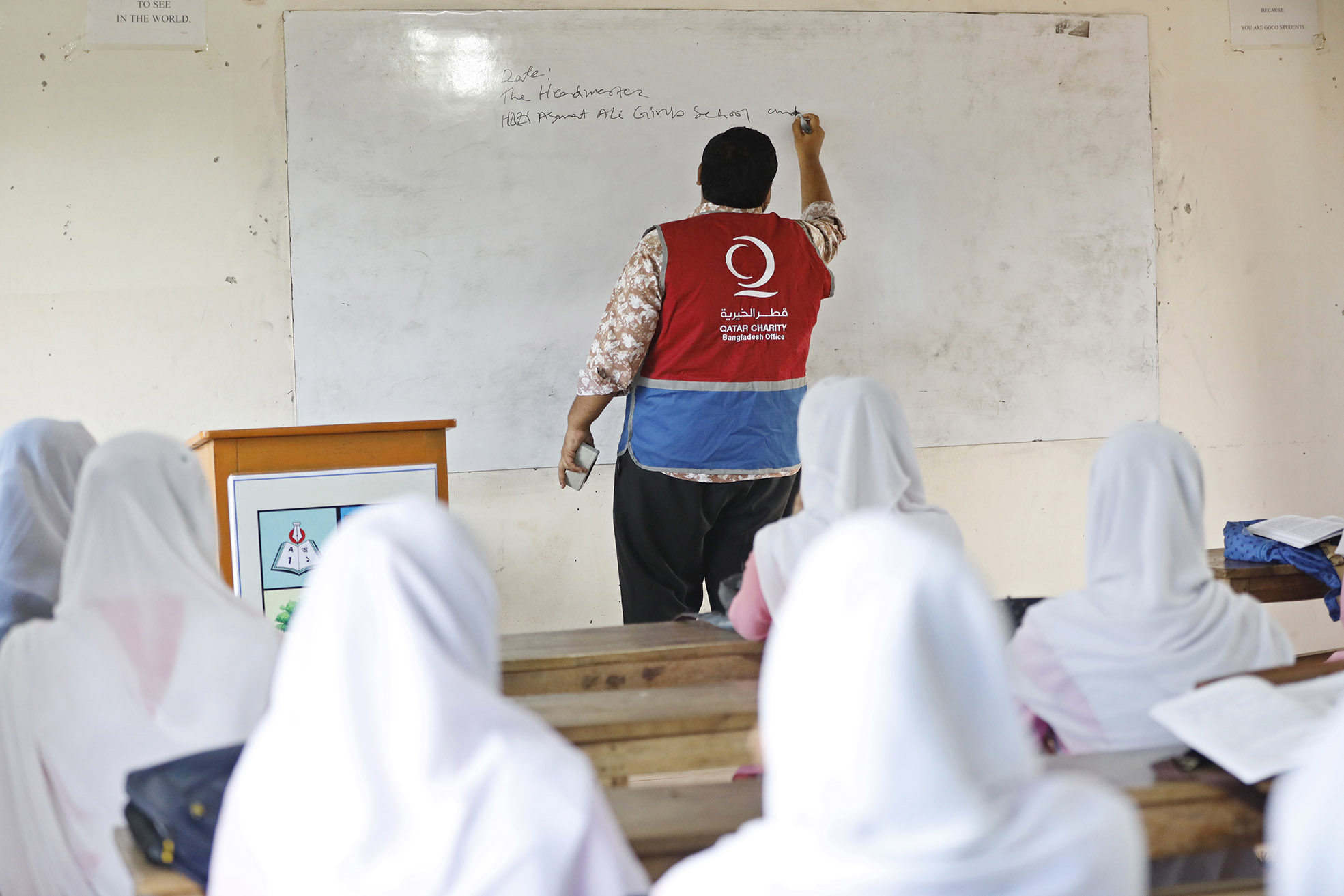The country is already grappling with poverty, with at least 1.7 million children aged between six and 11 years engaged in child labor, forcing them to grow up without education.
Qatar Charity (QC) has enhanced its educational services for orphans in Bangladesh with the appointment of a group of specialised teachers at its schools.
In a statement on Sunday, the Qatari entity announced the latest appointment of 21 teachers that will implement educational plans to meet the “diverse needs” of orphans at its schools in Bangladesh.
The educational plan will merge traditional teaching methods with “innovative techniques” while paying individual attention to each orphan to provide them with better services as well as a “nurturing environment.”
QC sponsors more than 5,000 orphans across 13 orphanages in Bangladesh through its office in the capital Dhaka, with 157 teachers providing them with quality education.
“I am happy to join this initiative and contribute to teaching these wonderful children. I believe that every student can excel with the right support and resources. I strive to create a dynamic learning environment where students are encouraged to explore their abilities and achieve their aspirations,” Nafees Bin Khair, an English teacher appointed by QC, said.
QC’s efforts to support orphans in Bangladesh falls under its ‘Rofaqa’ initiative that is aimed at sponsoring and caring for orphans worldwide.
According to Distressed Children and Infants International, there are 4.8 million orphans in Bangladesh who either lost a single parent or both parents.
The country is already grappling with poverty, with at least 1.7 million children aged between six and 11 years engaged in child labor, forcing them to grow up without education.
A report by the United Nations children’s agency (UNICEF) on June 6 said that two in every three children under five in Bangladesh are living in what it described as “child food poverty.”
“This means that about 10 million Bangladeshi children consume fewer than the minimum five food groups recommended by UNICEF and WHO for adequate nutrition,” the organisation explained.
Bangladesh stands among the 20 countries that account for almost two thirds, or 65 percent, of the total number of child food poverty globally.







